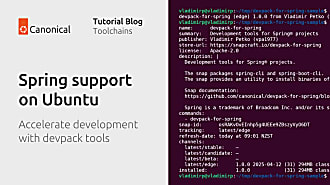Canonical
on 11 February 2019
Understanding containerised workloads for Telco

For telecommunications companies evaluating ways to transition and modernise their network infrastructure, cloud-native, container-based microservices architectures are a powerful solution in meeting requirements of compute needs through edge cloud and beyond.
Understanding infrastructure implications and design considerations for open source hardware and software development platforms, while remaining carrier grade and maintaining operational excellence and capacity, requires careful planning.
The path to success lies in the implementation of OpenStack infrastructure, with containers over the top for building private clouds. The modular nature of containers make them operationally friendly, portable, cost-optimised and infrastructure agnostic, and helps telcos “fast-follow” upstream innovation at the right pace of consumption.
Leveraging Kubernetes, which automates container operations, eases the process of adding new services, upgrading, and maintaining security, whilst allowing for the maximisation of infrastructure and savings on hardware and operations costs.
As there are multiple different challenges to solve and various layers of edge architecture, there is no one-size-fits-all edge cloud design. Edge architecture requires multiple substrates, including Kubernetes, to support low latency, high bandwidth use cases and optimise secure operations for the edge.
On Tuesday 12th February, join us in our webinar, “Containerised Workloads on Industry-Standard Hardware and Software for Telco” to delve into deploying container technology into production.
In this webinar you will learn about:
- Infrastructure implications: Understanding VNF, virtual machines, Openstack and containers
- Redevelopment path of VNF for containers
- Laying the groundwork for container technology: proactive planning and preparation
- The impact of containers on strategy for 5G, edge computing and AI
- Components for core certifications, portability and kubernetes distributions
- Use cases and deployments



